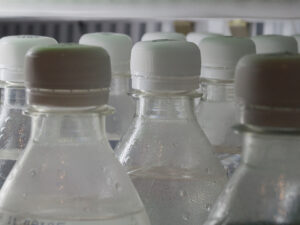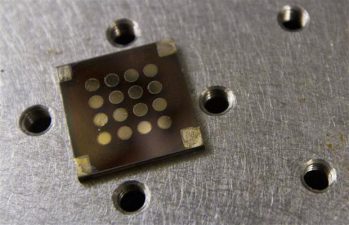
Qatar to tap the solar potential of the Middle East to supply 10 percent of its electricity by 2018.
Qatar is the latest of the oil-rich Middle East/North African (MENA) nations to make bold solar plans to trap a world-record insolation to supply energy for its rapidly growing economy – one that bolted an incredible 20 percent last year.
This week a senior official of Qatar Electricity and Water Company (QEWC) announced the replacement of over 10 percent of its conventional forms of energy used to produce electricity and water with solar power by 2018.
With an incredible daily supply of 16 hours of solar insolation, Qatar has the chance to build a solar-based electricity supply which is far more efficient than any other part of the world.
“Countries that have opted and developed solar energy have benefited a lot. Presently we are planning to replace 10 percent of total energy used for electricity generation and water desalination with solar power by 2018”, General Manager of QEWC Fahad Hamad Al Mohannadi told a news conference attended by the Federation of Arab News Agencies.
He added that the future is full of challenges as we will require more and more energy in the years to come; so with the passage of time as a result of scientific advancement and availability of cost effective technologies, solar power will provide a viable alternative source of energy.
QEWC is serious about local solar power production. It has just signed a memorandum of understanding to cooperate with Qatar-based Qatar Solar Technologies (QSTec) to advance solar power in the region.
Last December QSTec was awarded the New Economy Magazine’s Clean Tech and New Energy Award for Best Joint Venture (Middle East/Africa). Its $1 billion polysilicon manufacturing plant, located in Ras Laffan Industrial City, will initially produce 8,000 metric tonnes of polysilicon in 2013.
Polysilicon is the raw material for solar panel production, and it is refined from sand in a complex high tech processing facility. The company acquired the advanced second generation technology for solar grade polysilicon production from Centrotherm Photovoltaics of Germany.
QSTec has signed a memorandum of understanding to assist QEWC in helping it meet the goal to supply 10 percent of the kingdom’s energy demand from solar, although it is not clear from the press release just how the two will make solar panels from the polysilicon, since neither are in the solar panel manufacturing business.
But German solar energy module manufacturer SolarWorld holds a one third stake in QSTec and no doubt expects to source polysilicon for its German solar module manufacturing from the deal.
But like Saudi Arabia, which recently startled the world with an unprecedented and extraordinarily ambitious solar goal, Qatar seems to hope to handle the production and manufacturing side of the goal at home. Saudi Arabia too has begun the refining of polysilicon from its abundant sands.
For both countries, polysilicon manufacturing is a brand new industry. The resolve with which these two sand-and-sun-rich middle eastern countries have embraced the new industry bodes very well for a clean energy future.
Read more on solar Middle East:
Interview: SolarReserve For the MENA Region?
Saudis Could Export Solar for the Next Twenty Centuries
Solar to Light Our Nights Gets Hotter
Image: douglas knight /Shutterstock


